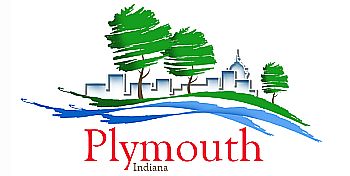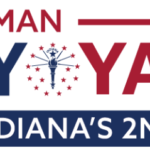 Monday evening Plymouth Clerk Treasurer Jeanine Xaver told members of the Common Council the City of Plymouth received an A+ long-term rating from Standard and Poor for the Plymouth Redevelopment Commission series 2017 lease rental bonds.
Monday evening Plymouth Clerk Treasurer Jeanine Xaver told members of the Common Council the City of Plymouth received an A+ long-term rating from Standard and Poor for the Plymouth Redevelopment Commission series 2017 lease rental bonds.
She explained to the council, “There are 20 levels in the rating spectrum; the city received the fourth highest rating.” However, Standard and Poor did note that “The city plans to use reserves in fiscal 2017 to increase public safety salaries, which are expected to be an ongoing expense. As such, in fiscal 2018, the city will either need to raise new revenue through increases to fees or levies or face a budget gap estimated to be $500,000,” said Xaver.
At their last meeting Xaver suggested raising fees to help compensate for the additional salary expenditures and the council agreed with the recommendation.
The Clerk Treasurer said, “I whole heartedly agree that you need to raise fees to help fund the activities in each department. But I do not believe that raising user fees will cover the cost of the raises that you’ve already given to the public safety employees.” She told them there is a limit in what can be charge for ambulance services by what the city can charge to Medicare patients.
The clerk said the recommendation of the building commissioner to raise rates for permits and applications for cases heard by the Plan Commission and Board of Zoning Appeals may see an increase in 2018 of approximately $7,000 to $8,000 in building permits and an estimated $5,000 in Plan Commission and BZA cases. Xaver said, “These increases do not quite cover the increases in the building commissioner’s budget since the last fee increase – let alone offset the most recent additional appropriation requests.” She said she figured the same thing will hold true for all of the departments: that the rate increases will offset the specific department increases over the past few years, but they will not offset the projected increased spending for 2017 and 2018.
Xaver said, “The city’s assessed valuation is not keeping up with the state’s annual growth quotient. While we have had growth in the past few years in the city, it has been primarily in the TIF districts, so the city departments that are funded by tax dollars are not benefiting from the property taxes in those areas.”
The clerk treasurer asked, “Do you want to reduce capital spending for 2018 or use the tools that the state has provided to you and adopt a wheel tax or ask the county to adopt a public safety LOIT.”
While no one wants another tax, the city has already seen a comment in the bond rating as a result of the additional public safety raises passed for 2017. Xaver said, “If you wish to have revenue in 2018 from a wheel tax, it has to be adopted by August 31st.
The City Council asked what kind of revenue could be raise by a local wheel tax and Xaver said Umbaugh had estimated $400,000 if they implemented the tax at the highest level possible.
The common council unanimously decided to explore the possibility of implementing a local wheel tax. A public hearing will be held during their August meeting.













